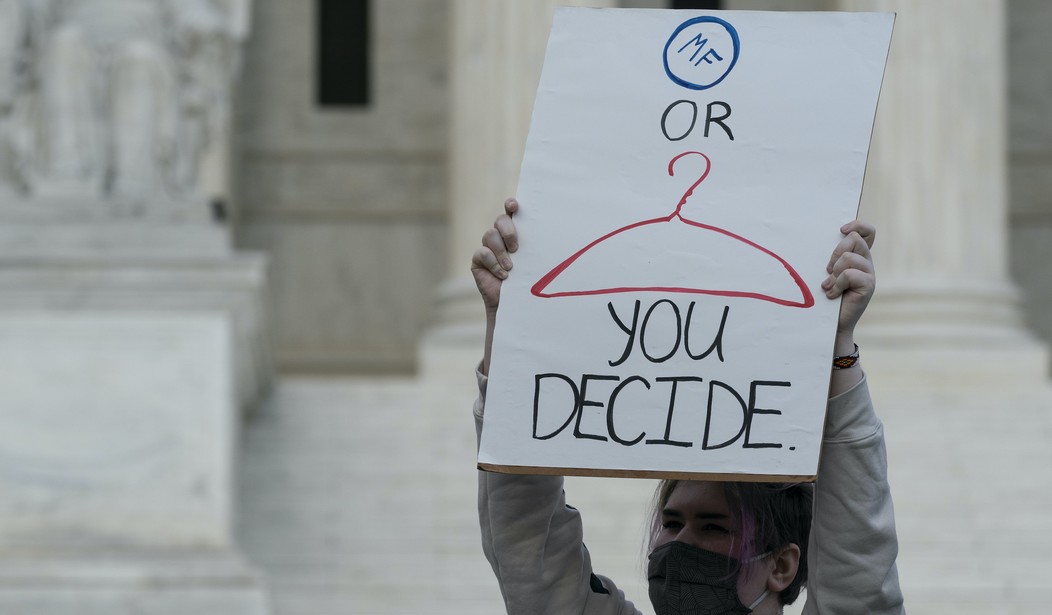With the recent news that the Supreme Court might be poised to overturn Roe v. Wade, leftists are already scheming to find ways to get around the abortion laws that are expected to be passed in conservative states. Indeed, the pro-abortion crowd is already looking to offer alternative methods of terminating pregnancies, and the issue could become even more pronounced after states pass stricter abortion laws if the Supreme Court strikes Roe down.
The Washington Free Beacon reported that “a liberal foundation that works to curb population growth is fighting to maintain abortion pill access – even when acquiring that pill is illegal” in response to the news that the Supreme Court could potentially strike down federal control over abortion laws. The Packard Foundation, a multibillion-collar group that provides grants to nonprofit organizations, has sent more than $3.5 million to groups that advocate for abortion pills.
While some of these groups operate within the law, one of the nonprofits, called DKT International, oversees websites that “encourage users to obtain abortion pills through an international provider,” according to the Free Beacon. The provider is Aid Access, a nonprofit based in Austria, which uses “telemedicine abortion” to mail pills all over the United States – even to states that have banned the use of these pills. The Packard Foundation gave DKT International $500,000 in 2022. It would not be surprising to see the organization receive more donations from progressive donors who wish to see more abortions continue in the U.S.
DKT International offers HIV/AIDS and “family planning” services in many countries across the globe. The group provides Ipas manual vacuum aspiration (MVA) to help women “safely” terminate their own pregnancies. The organization distributes these devices in over 100 countries. “Partnering with private sector distributors, public sector partners and non-profit organizations to ensure this critical technology is widely available and affordable, the DKT WomanCare platform is working to increase women’s access to safe abortion,” according to its website.
Another group, called Abortion Delivered, plans to use vans to offer mobile abortion services if Roe is overturned. North Carolina Public Radio reported that the organization is planning to station its vehicles just outside the borders of states that outlaw abortion to make it easier for women to access an abortion provider without having to travel far.
Aid Access is another organization that ships abortion pills. The Free Beacon explained:
Nineteen states ban the use of telemedicine for abortion, and others may move to prohibit telemedicine abortion consultations in their states if the Supreme Court strikes down Roe. But Aid Access has already evaded regulatory challenges in the United States. After the Food and Drug Administration in 2019 sent the nonprofit a cease-and-desist letter, Aid Access sued the federal agency. The FDA did not follow through on its threat, and the lawsuit was subsequently dismissed.
There are other methods pro-abortion organizations will likely use in the event of Roe being overturned. At least one person has fashioned a device that could function similarly to an MVA. The Atlantic published an interview with a woman they call “Ellie” who has created such a device. From the report:
One bright afternoon in early January, on a beach in Southern California, a young woman spread what looked like a very strange picnic across an orange polka-dot towel: A mason jar. A rubber stopper with two holes. A syringe without a needle. A coil of aquarium tubing and a one-way valve. A plastic speculum. Several individually wrapped sterile cannulas—thin tubes designed to be inserted into the body—which resembled long soda straws. And, finally, a three-dimensional scale model of the female reproductive system.
The report continued:
Ellie snugged the rubber stopper into the mason jar. She snipped the aquarium tubing into a pair of foot-long segments and attached the valve to the syringe’s plastic tip. In less than 10 minutes, Ellie had finished the project: a simple abortion device. It looked like a cross between an at-home beer-brewing kit and a seventh-grade science experiment.
This is apparently one of the ways women obtained abortion before the Roe v. Wade decision. The pro-abortion crowd will undoubtedly develop other means to ensure abortions still occur, even in states that pass laws prohibiting the practice. Nevertheless, the potential overturning of the court decision remains a victory for the pro-life movement. But decreasing the number of abortions will now have to rely more on cultural and societal factors. After these laws are enacted, persuasion will become the primary way to promote life.














